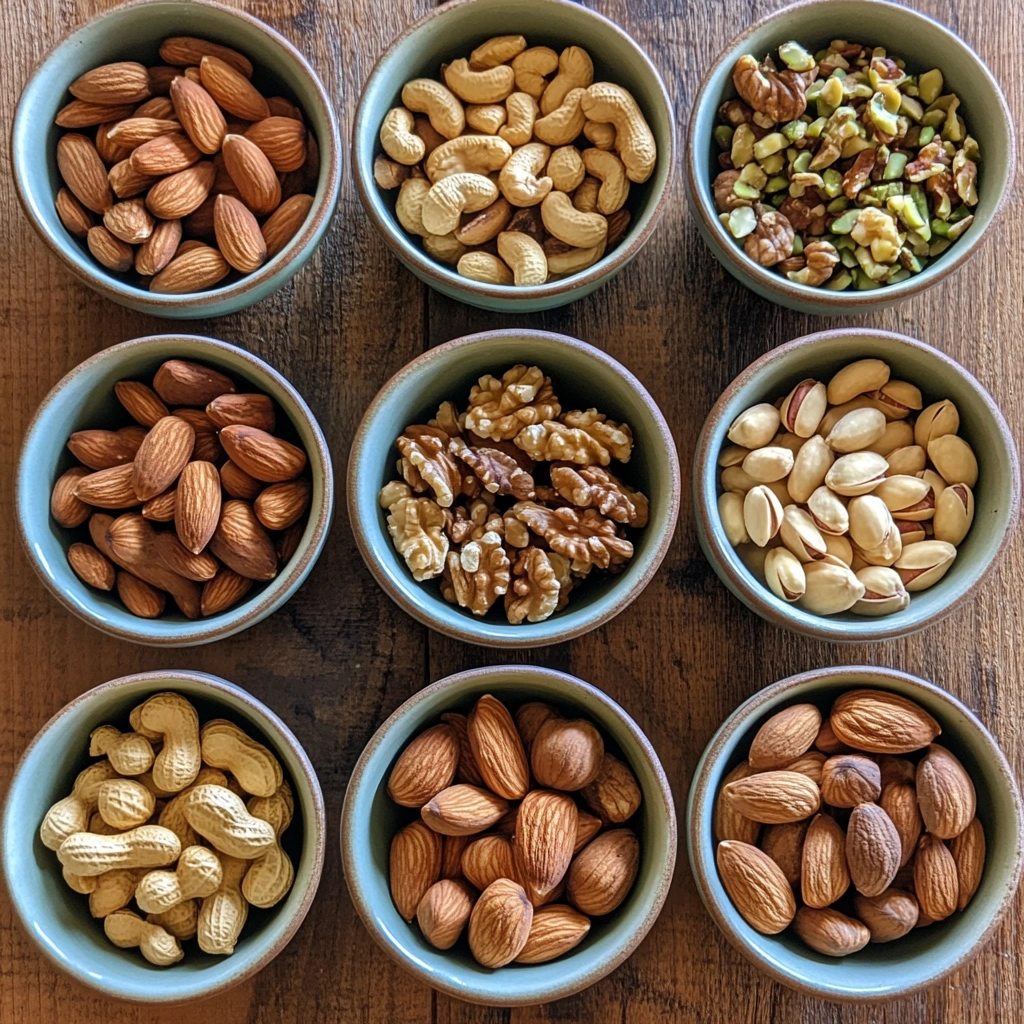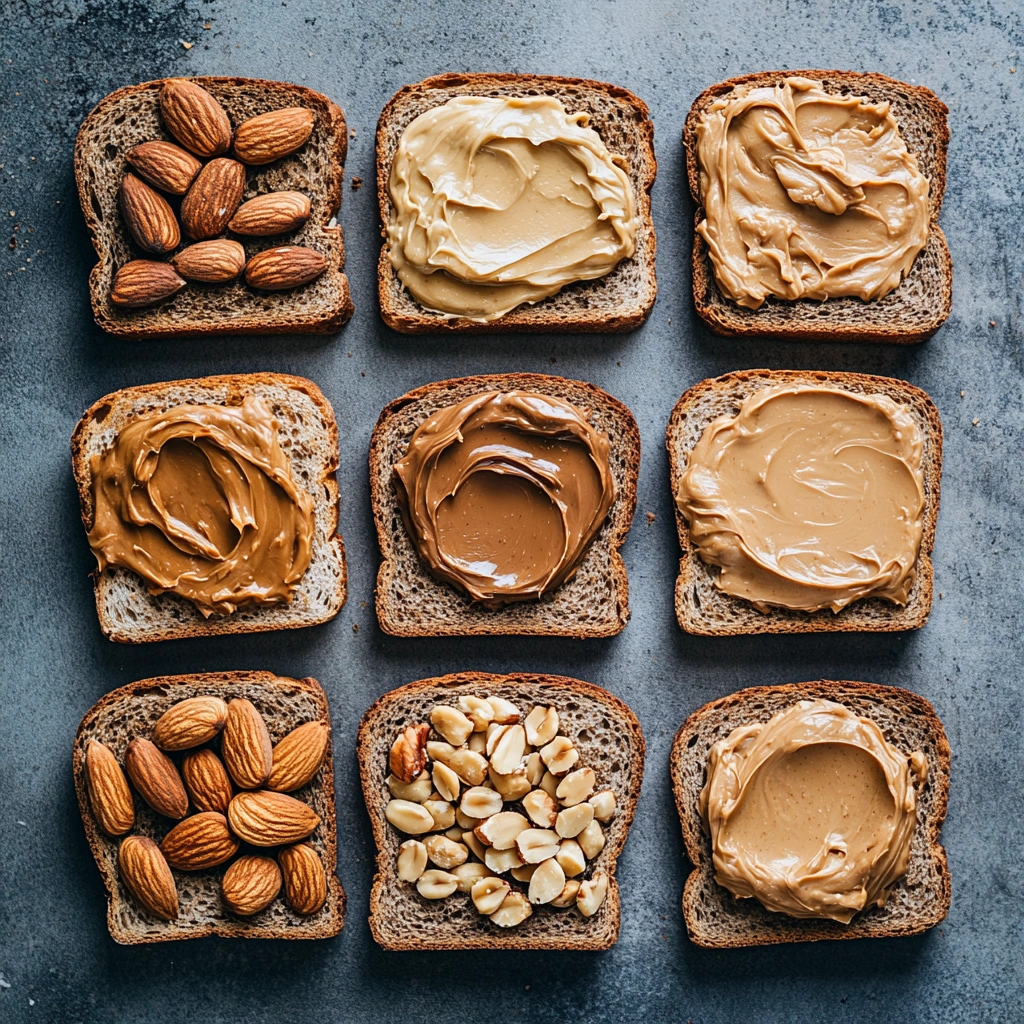In recent years, nut butters have exploded in popularity. Whether you’re a fan of almond butter, walnut butter, or peanut butter, the variety of options can be overwhelming. But what are the best nuts for nut butter? Choosing the healthiest option depends on your dietary needs, whether you’re looking for more protein, healthy fats, or specific vitamins. This guide will help you discover the top nuts to use for nut butter and why they might be the best choice for you.
The right nut butter depends on what you’re looking for: are you seeking high protein, healthy fats, or a nut butter rich in vitamins? This comprehensive guide will walk you through the best nuts for nut butter, examining their benefits and helping you make the right choice for your health.
Why Nut Butters Are a Healthy Choice
Nut butters are an excellent addition to your diet, as they provide a dense source of healthy fats, protein, and essential vitamins and minerals. Whether you’re vegan, on a keto diet, or simply looking for a delicious spread, nut butters offer a lot of flexibility. They can be used in smoothies, on toast, in baked goods, or simply enjoyed by the spoonful.
However, not all nut butters are created equal. When selecting the best nut butter, it’s important to look for varieties that are minimally processed, free from added sugars, and free from hydrogenated oils. You want a product that is as close to nature as possible.
Many people are turning to natural nut butters for their impressive nutritional profiles. For example, almond butter is one of the healthiest options due to its high levels of monounsaturated fats and vitamin E (source: Health Benefits of Nuts and Seeds). But what about other types? Let’s break down the nutritional profiles of the top nut butters to see how they compare.
Top 6 Nut Butters and Their Benefits

1. Almond Butter: The Heart-Healthy Choice
When it comes to the healthiest nut butter, almond butter takes the top spot. Almonds are loaded with monounsaturated fats, which are known to improve heart health by reducing bad cholesterol (LDL). Almonds are also a good source of vitamin E, an antioxidant that protects cells from damage. One serving of almond butter (about two tablespoons) provides:
- 10 grams of monounsaturated fat
- 7.74 milligrams of vitamin E (52% of your daily value)
- 6.72 grams of protein
Health benefits of almond butter include:
- Lowering the risk of heart disease and stroke
- Promoting healthy skin due to its high vitamin E content
- Supporting a healthy gut microbiome by reducing inflammation
Additionally, almonds are linked to reducing the risk of high blood pressure, diabetes, and metabolic syndrome. For a powerful nutritional punch, almond butter is hard to beat.
2. Walnut Butter: Rich in Omega-3s
Walnut butter is an excellent choice if you’re looking for a plant-based source of omega-3 fatty acids. Walnuts are one of the few nuts that contain high levels of alpha-linolenic acid (ALA), a type of omega-3 known for its anti-inflammatory and heart-protective properties. A two-tablespoon serving of walnut butter provides:
- 5 grams of protein
- 2 grams of fiber
- High levels of omega-3 fatty acids
Walnut butter offers these health benefits:
- Supports brain health and cognitive function
- Reduces inflammation throughout the body
- Promotes a healthy heart by lowering cholesterol levels
Research has also shown that walnut butter can help reduce blood pressure and may improve overall brain function (source: Omega-3 Sources in Plant-Based Diets).
3. Peanut Butter: High in Protein

While technically a legume, peanut butter is often grouped with nut butters due to its culinary uses. Peanut butter remains a favorite among many because of its rich taste, affordability, and high protein content. In fact, peanut butter delivers more protein than most other nut butters, making it an excellent option for those looking to build muscle. A serving of peanut butter offers:
- 7.1 grams of protein
- 8.29 grams of monounsaturated fats
- High levels of vitamin B3 and manganese
Key health benefits of peanut butter include:
- Promoting muscle growth and recovery
- Supporting metabolism due to its B vitamins
- Being an affordable source of healthy fats and protein
However, it’s important to choose natural peanut butter that doesn’t include added sugars or hydrogenated oils, as some commercial peanut butters contain unhealthy ingredients.
4. Cashew Butter: Creamy and Nutrient-Dense
Cashew butter is loved for its creamy texture and sweet, mild flavor. Although it’s lower in protein compared to peanut or almond butter, it’s rich in essential minerals like copper and magnesium. These minerals are vital for brain function, energy production, and immune support. A serving of cashew butter provides:
- 5.64 grams of protein
- 9.32 grams of monounsaturated fats
- 78% of your daily value for copper
Health benefits of cashew butter include:
- Supporting brain health and development
- Aiding in energy metabolism
- Contributing to strong bones and healthy connective tissues
Because of its unique flavor, cashew butter works well in smoothies, baked goods, and as a topping for desserts.
5. Pistachio Butter: High in Fiber and Antioxidants
Though less common, pistachio butter is another great choice for those seeking a fiber-rich nut butter. Pistachios are a good source of vitamin B6, which is important for immune function and protein metabolism. A serving of pistachio butter provides:
- 6.02 grams of protein
- 3.01 grams of fiber (12% of your daily value)
- High levels of antioxidants and vitamin B6
Benefits of pistachio butter include:
- Supporting digestion and gut health
- Boosting immune function with its B vitamins
- Offering antioxidants that fight free radical damage
6. Hazelnut Butter: Vitamin E for Skin and Heart Health
Hazelnut butter is packed with vitamin E and healthy fats, making it a great option for promoting heart health and skin care. However, it’s important to differentiate between plain hazelnut butter and chocolate-hazelnut spreads, which can contain high amounts of sugar and saturated fats. A serving of plain hazelnut butter provides:
- 5.01 grams of protein
- High levels of vitamin E, magnesium, and copper
Health benefits of hazelnut butter include:
- Supporting skin health due to its antioxidant properties
- Promoting heart health by reducing inflammation
- Offering a rich source of magnesium for muscle and nerve function
For a healthy snack, choose natural hazelnut butter without added sugars or oils.
Nut Allergies and Alternative Options

If you have a nut allergy, you don’t have to miss out on the benefits of nut butters. There are several seed butters available, such as pumpkin seed butter and sunflower seed butter. These are made in the same way as nut butters and offer similar nutritional benefits without the allergen risk.
Pumpkin seed butter is an excellent alternative, especially for those looking for a high-protein, iron-rich spread. It delivers 10 grams of protein per serving, along with a significant dose of magnesium, iron, and zinc. Similarly, sunflower seed butter is packed with vitamin E, magnesium, and healthy fats.
Benefits of seed butters:
- Suitable for people with nut allergies
- High in protein and healthy fats
- Rich in iron, magnesium, and zinc
FAQs
What are the best nuts for nut butter if I have a nut allergy?
For those with nut allergies, seed butters like pumpkin seed butter and sunflower seed butter are excellent alternatives. These options provide similar nutritional benefits and are often used in the same way as traditional nut butters.
Are flavored nut butters healthy?
Flavored nut butters can be healthy, but it depends on the ingredients. Many flavored varieties contain added sugars and unhealthy fats, which can negate the benefits of the nuts. Always check the label for simple ingredients, such as just nuts and a bit of salt.
Which nut butter is best for weight loss?
When it comes to weight loss, almond butter is often considered the best option due to its high content of monounsaturated fats, which can help you feel full longer. It’s also lower in calories compared to other nut butters.
Can nut butters be part of a vegan diet?
Yes, nut butters are a staple in many vegan diets because they provide a plant-based source of protein and healthy fats.
Are nut butters suitable for children?
Yes, nut butters can be a healthy and nutritious snack for children. However, always ensure that the product you choose is free from added sugars and hydrogenated oils.
What is the healthiest nut butter?
Almond butter is often considered the healthiest due to its high content of monounsaturated fats, vitamin E, and magnesium. It supports heart health and reduces bad cholesterol levels.
Is nut butter good for weight gain?
Yes, nut butters are calorie-dense and rich in healthy fats and protein, making them a good option for healthy weight gain. However, portion control is key to avoid excess calorie consumption.
How much nut butter should I eat per day?
A typical serving size is about two tablespoons of nut butter, which provides a balance of protein, fats, and essential nutrients. Eating too much can lead to excess calorie intake, so moderation is recommended.
Can I use nut butter in cooking or baking?
Yes, nut butter can be used in a variety of ways, including as a substitute for butter or oil in baking, as a spread on toast, or as an ingredient in smoothies and sauces. Almond butter and peanut butter are commonly used in recipes.
Is nut butter keto-friendly?
Most nut butters are keto-friendly, especially those that are high in healthy fats and low in carbohydrates. Macadamia butter and almond butter are particularly popular in keto diets due to their low carb content and high fat levels.
Are all nut butters gluten-free?
Yes, natural nut butters made from just nuts are naturally gluten-free. However, some processed nut butters may contain additives or be produced in facilities that handle gluten-containing products, so it’s important to check the label.
What is the difference between nut butter and seed butter?
Nut butter is made from nuts such as almonds, peanuts, or walnuts, while seed butter is made from seeds like sunflower seeds, pumpkin seeds, or sesame seeds. Both offer similar health benefits, but seed butter is often a good alternative for people with nut allergies.
Conclusion
Choosing the right nut butter depends on your health goals. Whether you’re looking for a high-protein option like peanut butter, a heart-healthy choice like almond butter, or an omega-3-rich option like walnut butter, there’s a nut butter out there for you.
To get the most nutritional benefit, choose natural varieties with simple ingredients. Avoid added sugars, oils, and highly processed versions. With so many options available, there’s no excuse not to enjoy the health benefits of nut butters!


